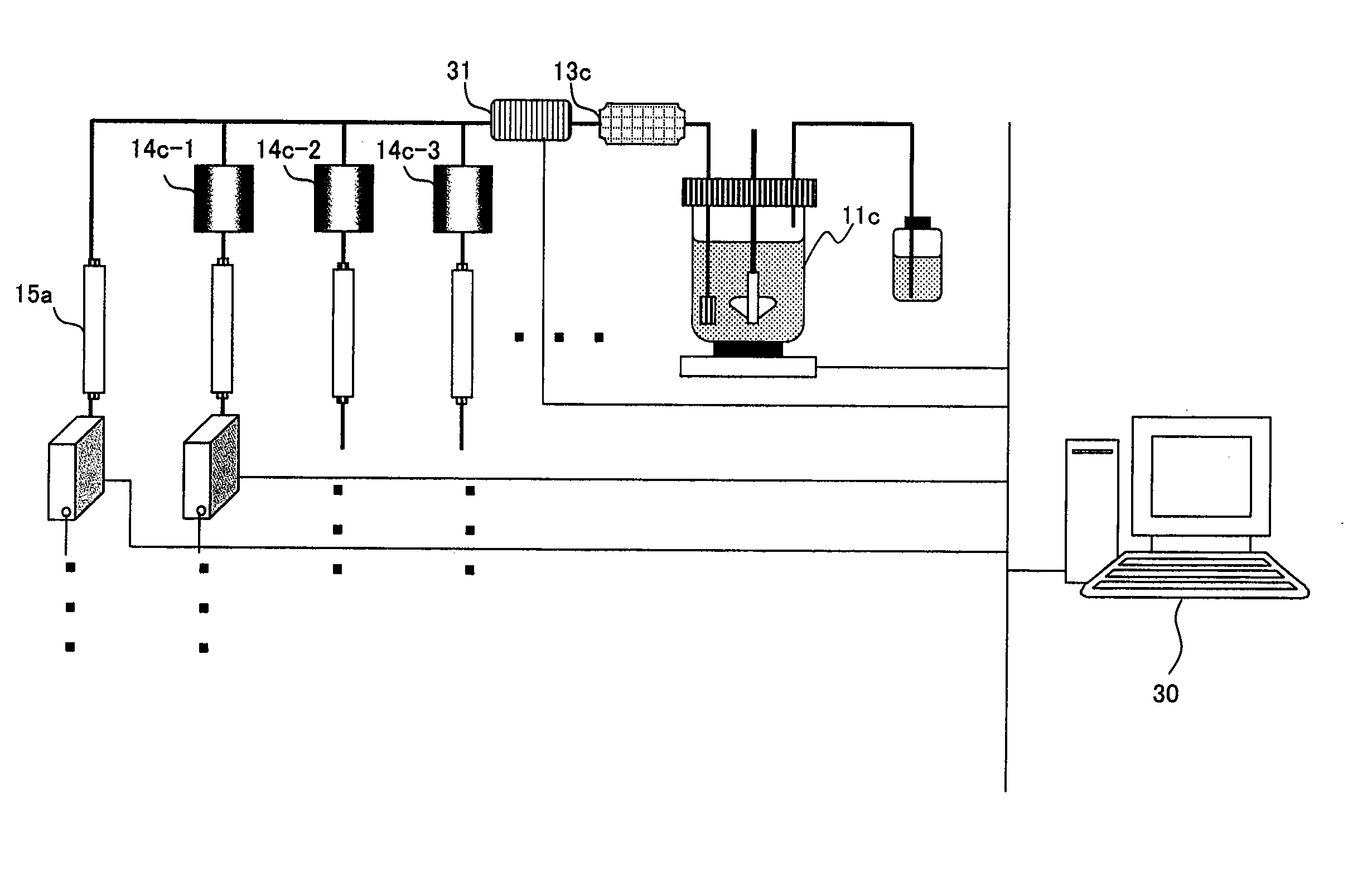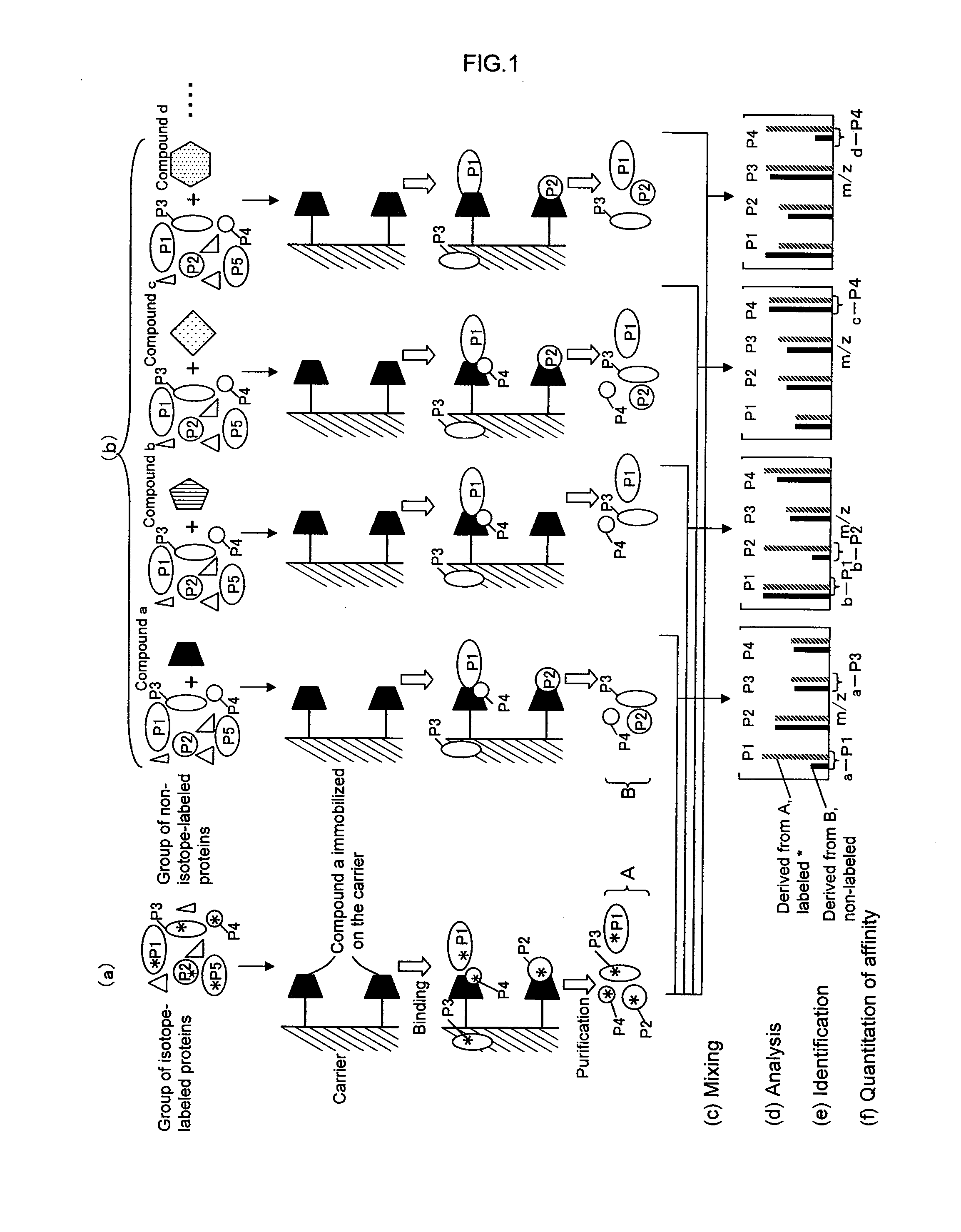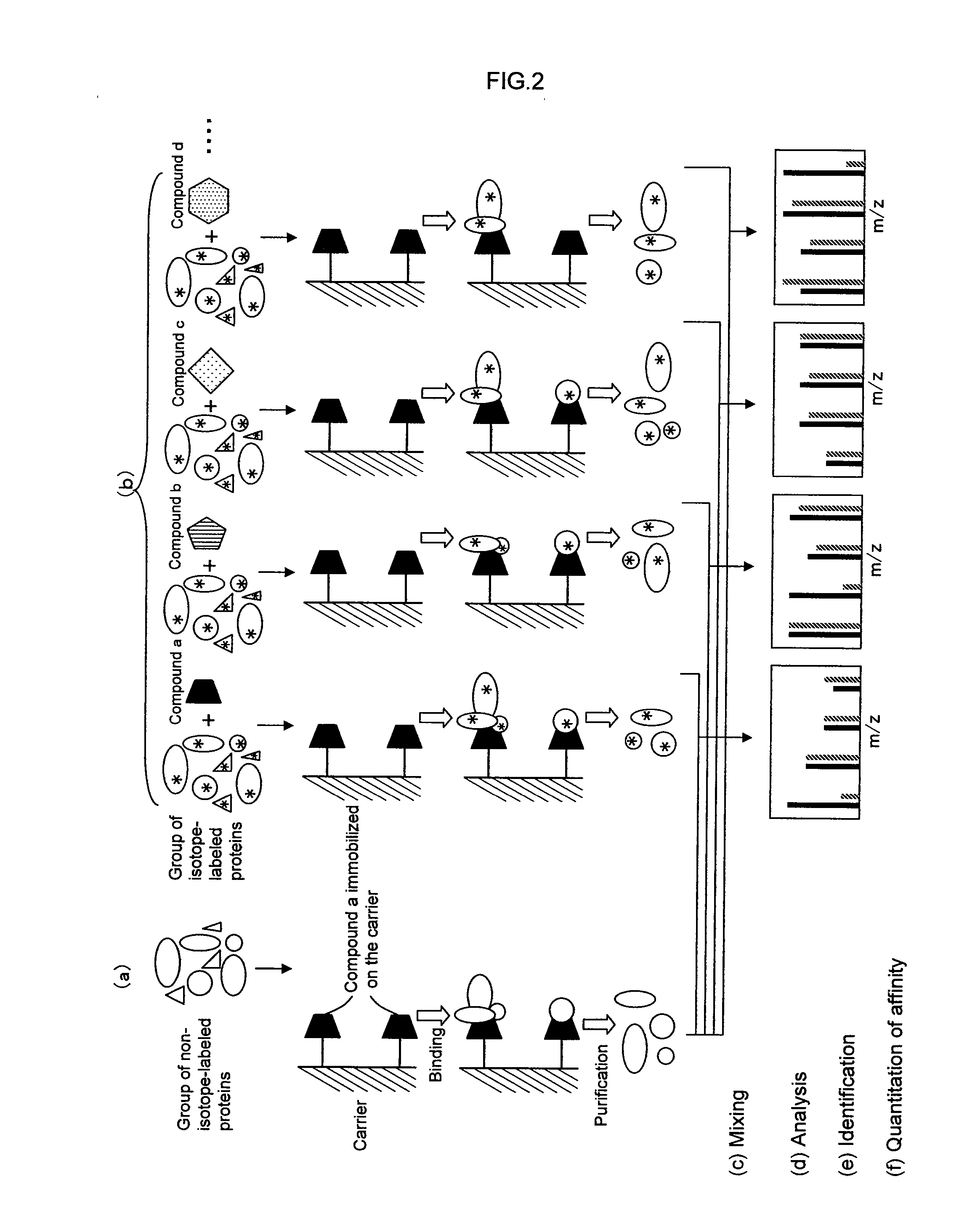Method of Analyzing Protein Structure Affinity Relationship
a protein structure and affinity relationship technology, applied in the field of structural affinity relationship analysis, can solve the problems of limited number of proteins that can be actual targets, difficult to apply this method to poorly soluble drugs, and the true target may be dissociated from the compound, so as to reduce the concentration of the compound
- Summary
- Abstract
- Description
- Claims
- Application Information
AI Technical Summary
Benefits of technology
Problems solved by technology
Method used
Image
Examples
first embodiment
1. FIRST EMBODIMENT OF THE PRESENT INVENTION
[0118] A first embodiment of the present invention provides a method for analyzing a structural affinity relationship between plural kinds of proteins and a compound, comprising the steps of:
(a) using a compound-immobilized carrier to purify plural kinds of proteins bound to the compound on the carrier, from a group of isotope-labeled proteins;
(b) using a compound-immobilized carrier to purify plural kinds of proteins bound to the compound on the carrier, from a group of proteins brought into contact with a compound beforehand;
(c) mixing the proteins obtained in step (a) and step (b);
(d) analyzing the mixture obtained in step (c) with mass spectrometry;
(e) identifying each of plural kinds of proteins based on information obtained by the mass spectrometry;
(f) obtaining, regarding each protein, an intensity ratio between a peak derived from the protein obtained in step (a) and a peak derived from the protein obtained in step (b),...
second embodiment
2. SECOND EMBODIMENT OF THE PRESENT INVENTION
[0234] A second embodiment of the present invention provides a method for analyzing a structural affinity relationship between plural kinds of proteins and a compound, comprising the steps of:
(a) using a compound-immobilized carrier to purify plural kinds of proteins bound to the compound on the carrier, from a group of proteins;
(b) using a compound-immobilized carrier to purify plural kinds of proteins bound to the compound on the carrier, from a group of proteins brought into contact with a compound beforehand;
(c) isotope-labeling one of the proteins obtained in step (a) and the proteins obtained in step (b);
(d) mixing the labeled proteins obtained in step (c) with the proteins obtained in step (a) or the proteins obtained in step (b) which are not labeled in step (c);
(e) analyzing the mixture obtained in step (d) with mass spectrometry;
(f) identifying each of plural kinds of proteins based on information obtained by the mas...
third embodiment
3. THIRD EMBODIMENT OF THE PRESENT INVENTION
[0273] A third embodiment of the present invention provides a method for analyzing a structural affinity relationship between plural kinds of proteins and a compound, comprising the steps of:
(a) using a compound-immobilized carrier to purify plural kinds of proteins bound to the compound on the carrier, from a group of proteins;
(b) mixing the proteins obtained in step (a) and a group of isotope-labeled proteins as an internal standard substance;
(c) analyzing the mixture obtained in step (b) with mass spectrometry;
(d) using a compound-immobilized carrier to purify plural kinds of proteins bound to the compound on the carrier, from a group of proteins brought into contact with a compound beforehand;
(e) mixing the proteins obtained in step (d) and a group of isotope-labeled proteins as an internal standard substance;
(f) analyzing the mixture obtained in step (e) with mass spectrometry;
(g) identifying each of plural kinds of prot...
PUM
| Property | Measurement | Unit |
|---|---|---|
| Force | aaaaa | aaaaa |
| Electrical conductance | aaaaa | aaaaa |
| Dynamic viscosity | aaaaa | aaaaa |
Abstract
Description
Claims
Application Information
 Login to View More
Login to View More - R&D
- Intellectual Property
- Life Sciences
- Materials
- Tech Scout
- Unparalleled Data Quality
- Higher Quality Content
- 60% Fewer Hallucinations
Browse by: Latest US Patents, China's latest patents, Technical Efficacy Thesaurus, Application Domain, Technology Topic, Popular Technical Reports.
© 2025 PatSnap. All rights reserved.Legal|Privacy policy|Modern Slavery Act Transparency Statement|Sitemap|About US| Contact US: help@patsnap.com



